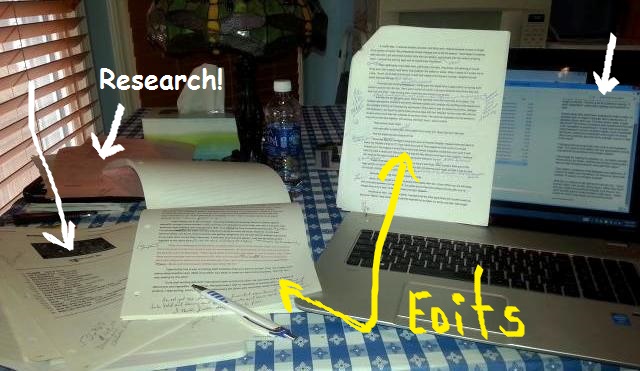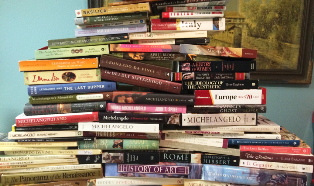Writers Need SenSEnces

At a recent Writers’ Group meeting, we went around the table and introduced our work-in-progress, genre, and what we hoped to achieve in the group. There we were chatting about our “stuff” and I overheard one writer make a comment, “I realized my character went through the entire book and never changed clothes.” We all had a good belly laugh at this but then – you know me – I turned that into a discussion about what characters have to have or do to be relatable, for the story to actually live and breathe.
And yes, your character needs to change clothes. More, your characters should do what you do, eat, sleep, go to the bathroom, shower, drive, be ill, burn food, shovel snow, etc. There should be food and dining — sleeping, relaxing, sex (do not have to have scenes but couples do mention it), accidents, arguments — well, the list goes on forever.
The reason for these “life events” is twofold. First, these real events give truth to your characters (even ones on odd, new worlds). Second, they can be the catalysts for moving your story forward.
I am particularly aware of my “scenes” when I write. How do you show and not tell when your character is listening to others? Maybe it is in the food. Does it remind your character of something unpleasant? Maybe the smell of Lysol from the kitchen brings back a hospital stay, so your character cannot eat because the smell drives him/her from the room. Remember you don’t have to outline every nuance for your readers; hopefully the subtle meaning will be enough.

Everyone is good at sights and sounds. What about the way a person speaks? Are characters’ voices clearly understood? Maybe a drawl gives a false perception to your character that causes them to jump to conclusions or say something untoward to the other person. Let those things happen and suddenly you have a much richer moment and your character has character (good or bad). Church bells, car alarms, screaming, laughter — all are important aspects to character but can also move action forward with purpose, too.
Do you use touch in your moments? Perhaps the silk of a flower against a cheek or the rough skein or a woolen scarf in winter reminds a little boy of being wet and cold and scolded by his mother. Or a single finger tracing over a woman’s knuckle by a reticent lover enlarges her pupils. Often these activities tell more than any dialogue could. Use them to advantage and let the action explain the character (he was a romantic man is better understood through the touch of a rose to her lips).
Back to that character who never changed clothes during the entire book. Of course, the writer is going back to fix this, but when the fixing is happening, so much more will result because of the change! Nakedness can have an important voice (mind out of gutter now) for babies, surely, but for adults the bare necessity holds a myriad of possibilities. A dress chosen instead of a pantsuit by a pants-wearing character. A pair of jeans and a Henley instead of Mr. Wall Street’s usual Armani suit. Hmm, casual Friday, weekend getaway or…something more nefarious afoot? Maybe an allergy to silk can lead to murder or laughter. How you need to develop the tale can depend on how your clothes feel to your character. Maybe she changed her hose because it wasn’t her skin color or there was a hole in the sock.
Sometimes, the senses can let your character down, and you should allow it to happen. What about the guard dog that failed to pick up a critical scent, the speeding driver who didn’t hear the fire truck for the loud music in the car with the screaming pregnant woman in the back seat, the little child who holds a first dandelion (stares at it and promptly eats it), the plastic surgery gone awry and the moment a patient gets that first look? The failures can be critical too. Use them but use the sensory part of it to tell your tale. Don’t simply tell us about it. That’s so boring and not nearly as fun.

So, you ask, why didn’t the character change clothes? Did the writer lack the talent to do this? No, the writer spent more time on the surroundings instead of the intimacies of the character. The writer made a lush, active sci-fi world but forgot to let the character live fully within it.
That’s why you need to let your character use all the senses and become a real person. Change the clothes; maybe do the laundry. Notice the stinky socks. Your story will thank you for it and we, the readers, will be begging you for more stories that we can’t forget or stop reading.
***
Coming in April, I’m going to do a series on understanding poetry. So be sure to tune in for a perspective that I promise you have not seen!
***
I’M RUNNING A BAR/CLUB NAMING CONTEST! Are you clever? I’m running a contest to find a very cool, not cliché, name of a vampire bar/club in New Orleans. This establishment belongs to my redheaded vampire Drahomira from my urban fantasy novella, Midnight Assassin – A Tale of Lust and Revenge. There will be permanent name recognition to the winner and signed books too. Contest ends on March 19. So ENTER HERE! And Good Luck! Winners will be announced on March 21.
***
LOOK FOR A LIVE CHAT ON FACEBOOK COMING AT THE END OF THE MONTH!
As always, thanks for dropping by. Leave a comment and say hello.
Yours Between the Lines,
Sherry

























